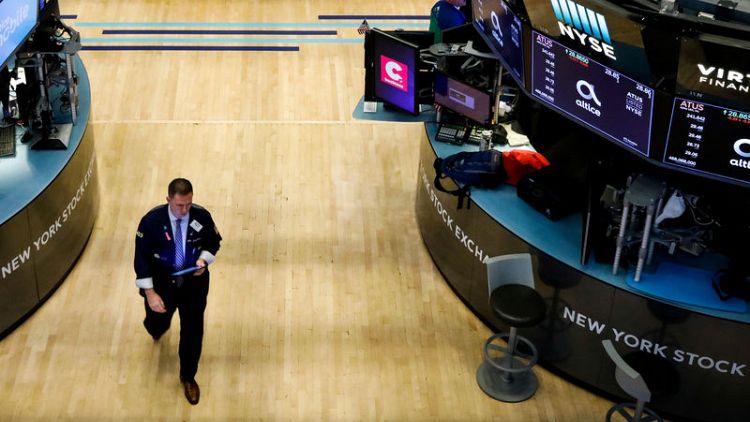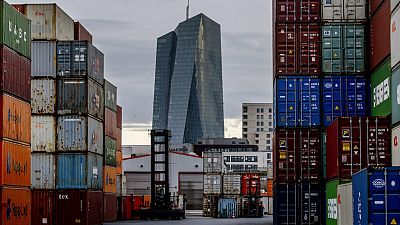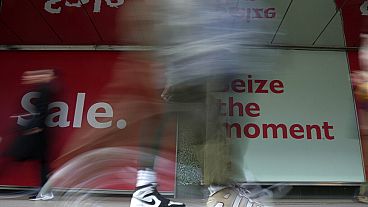By Chuck Mikolajczak
NEW YORK (Reuters) - A gauge of global stocks gave up initial gains on Monday as investors questioned whether likely stimulus measures from the world's central banks would be enough to deter slowing growth, while the pound hit a six-week high in choppy trading.
After two straight weeks of gains, stocks on Wall Street slipped, as advances in energy <.SPNY> and financial <.SPSY> shares were offset by a decline in tech <.SPLRCT> names.
Earlier, data showed Japan's economy grew at a slower pace than initially estimated in the second quarter as the U.S.-China trade war prompted a downward revision of business spending, intensifying calls for the central bank to deepen stimulus this month.
Still, barring a major announcement on trade developments between the United States and China, stock movements were likely to be muted ahead of the next policy announcement by the Federal Reserve on Sept. 18 as investors have begun to question whether central banks even have enough measures at their disposal to support economic growth.
The European Central Bank is expected to introduce new stimulus measures at its meeting on Thursday.
"To what extent is even a highly coordinated effort to reduce the cost of capital, how is that going to affect the global economy?" said Peter Kenny, Founder, Kenny’s Commentary LLC and Strategic Board Solutions LLC in New York.
"There is a degree of skepticism that this time around it will have the same sort of therapeutic effect on triggering appetite."
Federal Reserve Board Chairman Jerome Powell said the central bank would continue to "act as appropriate" to sustain U.S. economic expansion.
The Dow Jones Industrial Average <.DJI> rose 17.36 points, or 0.06%, to 26,814.82, the S&P 500 <.SPX> lost 3.53 points, or 0.12%, to 2,975.18 and the Nasdaq Composite <.IXIC> dropped 33.20 points, or 0.41%, to 8,069.87.
European shares ended lower, as Britain's export-heavy FTSE index tumbled due to a stronger pound, while selling in defensive sectors such as healthcare and utilities dented early gains in markets.
The pan-European STOXX 600 index <.STOXX> lost 0.28% and MSCI's gauge of stocks across the globe <.MIWD00000PUS> shed 0.06%.
Sterling hit a six-week high of $1.2382(1 British pound = $1.2346) <GBP=> as investors saw the likelihood of a "no-deal" Brexit lessening and data that indicated Britain's economy picked up more than anticipated in July.
British Prime Minister Boris Johnson will try for a second time on Monday to call a snap parliamentary election, but is set to be thwarted once more by opposition lawmakers who want to ensure he cannot take Britain out of the European Union without a divorce agreement in place.
Sterling's gains were briefly pared sharply as John Bercow, speaker in Britain's House of Commons, announced he would stand down from the role.
Sterling <GBP=> was last trading at $1.2347, up 0.54% on the day.
The dollar index <.DXY> fell 0.15%, with the euro <EUR=> up 0.24% to $1.1053.
Oil prices jumped after the new Saudi energy minister, Prince Abdulaziz bin Salman, confirmed expectations he would stick with his country's policy of limiting crude output to support prices.7
U.S. crude <CLcv1> rose 2.44% to $57.90 per barrel and Brent <LCOcv1> was last at $62.73, up 1.93% on the day.
(Editing by Dan Grebler and Cynthia Osterman)



